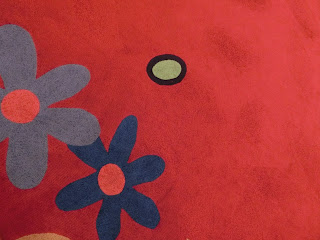how nature became less cooperative - 16th week Tuesday 2
In
our first reading today we see the forces of nature coming into play when
Israel went out of the land of their slavery pursued by the Paraoh’s army – a
pillar of cloud blocked the Egyptians as they race towards the Israelites, the
strong east wind blew the seabed turning it into dry land, and the waters of
the Red Sea stopped flowing and divided into two thus allowing a passage for
Israel. Origen in his homily commented on these miraculous events saying: “See
the goodness of God the Creator: if you submit to his will and follow his Law,
he will see to it that created things cooperate with you.”
Nature
cooperates if only we submit to God’s will and follow his law. This observation harps back to that beautiful
relationship and cooperation between man and nature in the garden of Eden
before sin entered the world. But when
man disobeyed God, the ground was cursed and it produced thorns and thistles and only through painful toil, by the sweat of
his brow can man eat of its produce.
When we disobey God’s commands nature also becomes less
cooperative.
Pope Francis in his encyclical “laudato si” rightly
observed that our environmental problems today have ethical and spiritual
roots. There is just so much greed, we
have become so individualistic, thinking only of ourselves and our own good, we
have acquired a throwaway culture and have become wasteful of our resources, we
live without that consciousness that we are all interconnected – that the
neglect of one has consequences for others.
We throw away the plastic bags that we use instead of recycling them, we
drink a little mineral water from the bottle tapos indi maubos ihaboy lang; ang
pagka-on nga gina-order naton anga-solobra kag ginahaboy lang naton sa bahog
kag sa basurahan, suga nagasiliga electric fan naga-andar nga wala man may
naga-usar, indi man kinahanglanon.
Even our own Filipino myths tell of those days when a
grain of rice as big as a basketball would just roll over from the fields to
the homes of people without so much effort from farmers. They just roll from the fields and find the
family they would feed. But one day
because of man’s greediness, because of man’s selfishness, the grains stopped –
they became smaller and no longer roll the way they did before. And now it is only by going through so much
hardships can we produce rice for our table.
And even then we still waste a lot of these. This may be a myth, it may not be a fact but
it teaches the truth, the truth that our sins affect nature and make her less
cooperative. And because of this we
suffer.

Comments